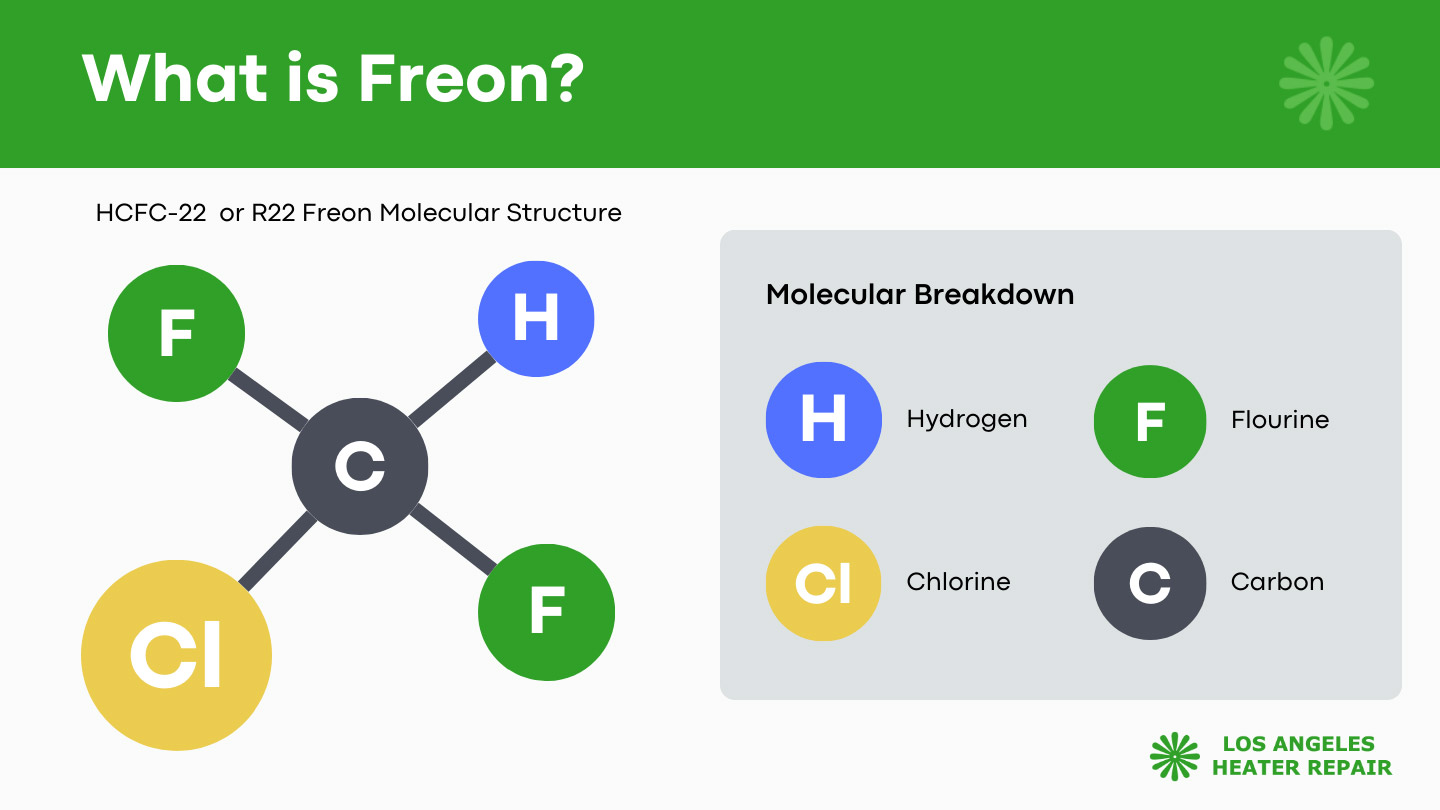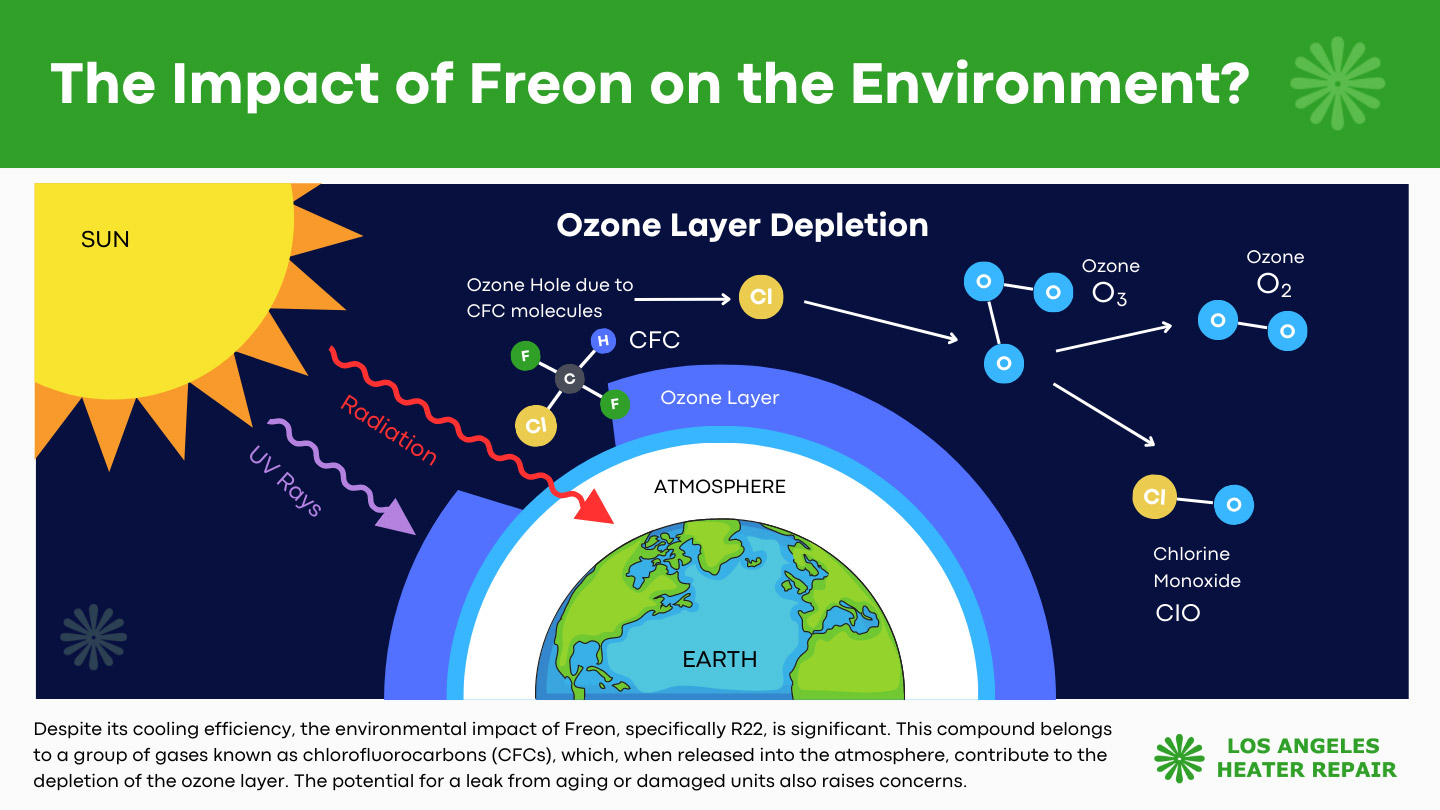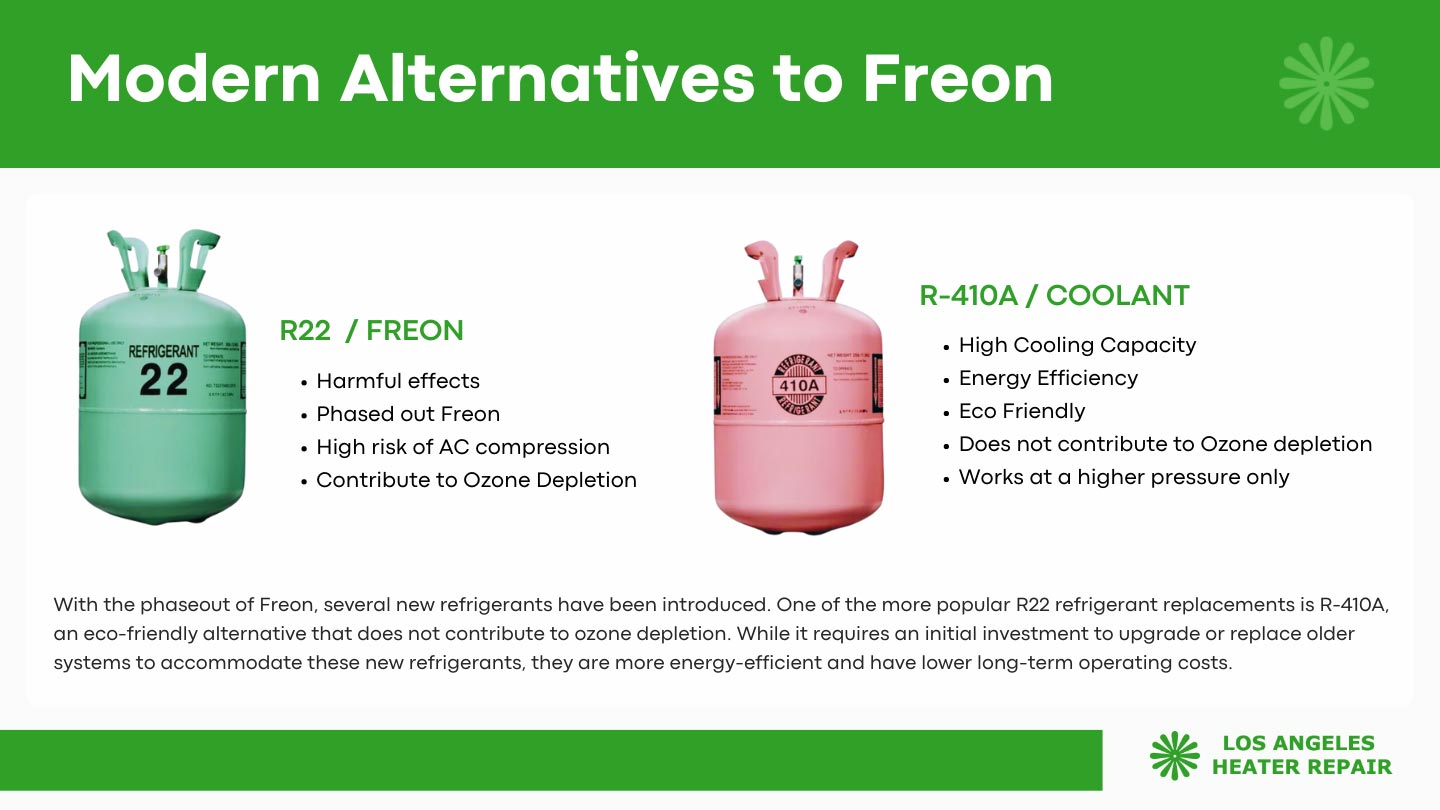
What is Freon?
Often referred to as AC coolant or air conditioner coolant, Freon is a refrigerant used in most cooling systems, including air conditioners. This compound absorbs heat from indoor air and releases it outside, providing a cool and comfortable indoor environment. The term “Freon” is actually a trademarked product name, and it’s used to denote a certain type of refrigerant, most notably R22, which is widely used in various cooling units from window-based to central air conditioning systems.
The Impact of Freon on the Environment

Despite its cooling efficiency, the environmental impact of Freon, specifically R22, is significant. This compound belongs to a group of gases known as chlorofluorocarbons (CFCs), which, when released into the atmosphere, contribute to the depletion of the ozone layer. The potential for a leak from aging or damaged units also raises concerns.
The Freon Phaseout
In response to these environmental issues, the production and import of R22 have ceased in the United States as of 2020. This phaseout has driven the need for an alternative Freon for AC and has led to a rise in the cost of Freon AC refill due to low supply.
Modern Alternatives to Freon

With the phaseout of Freon, several new refrigerants have been introduced. One of the more popular R22 refrigerant replacements is R-410A, an eco-friendly alternative that does not contribute to ozone depletion. While it requires an initial investment to upgrade or replace older systems to accommodate these new refrigerants, they are more energy-efficient and have lower long-term operating costs.
Identifying the Type of Refrigerant in Your AC
Identifying the type of refrigerant in your system is essential when considering an upgrade or replacement. This information is usually provided in the user manual or on a label attached to the system. If you are unsure, it’s best to check with a professional HVAC technician.
What If My AC Still Uses Freon?
If your system still uses R22 or Freon AC for home, you can continue to use it legally, although the supply and cost of R22 are becoming increasingly problematic. Alternatively, you can consider upgrading to a new system or retrofitting your current system to accommodate a more sustainable refrigerant.
Replacing Freon in Your AC Unit

Replacing Freon in your AC unit with a new refrigerant should always be done by a professional HVAC technician. Not only can they properly drain the old refrigerant, but they can also check for any potential leaks or damages that might affect your system’s efficiency.
Upgrading the Refrigerant in an Older System
While retrofitting an older system to accommodate a new refrigerant is possible, it might not always be cost-effective or technically feasible. In some cases, a complete system replacement might be a more beneficial option, particularly with the increasing availability of more energy-efficient and eco-friendly systems on the market.
Whether you’re dealing with a Freon AC or exploring new cooling options, it’s important to stay informed. Los Angeles Heater Repair is committed to helping you navigate these changes and find the best solution for your home’s cooling needs. Contact us today to learn more about our services.
Frequently Asked Questions
What is Freon and why is it being phased out?
Freon, specifically R22, is a type of refrigerant used in AC units. It is being phased out because it contributes to ozone depletion when released into the atmosphere.
What refrigerant replaces R22?
R-410A is a popular replacement for R22. It is an eco-friendly alternative that does not contribute to ozone depletion.
How do I know if my AC unit uses Freon?
You can usually find this information in the user manual or on a label on the unit. If in doubt, consult with a professional HVAC technician.
Can I replace Freon with a new refrigerant in my existing AC system?
Yes, it’s possible to retrofit some existing AC systems to accommodate a new refrigerant, although in some cases, replacing the system might be a more cost-effective option.
